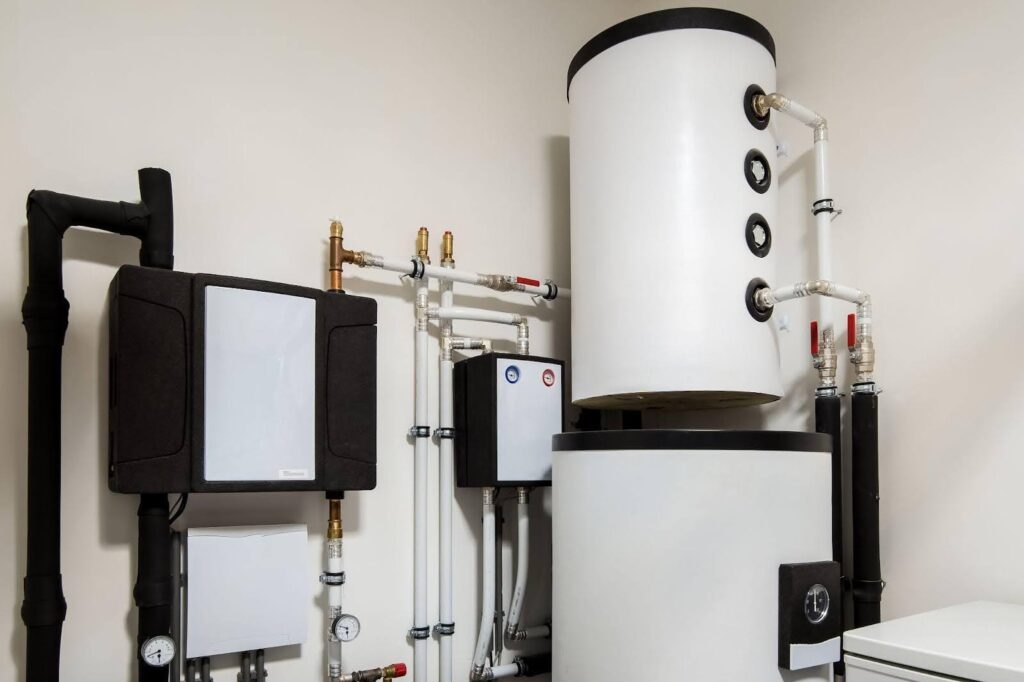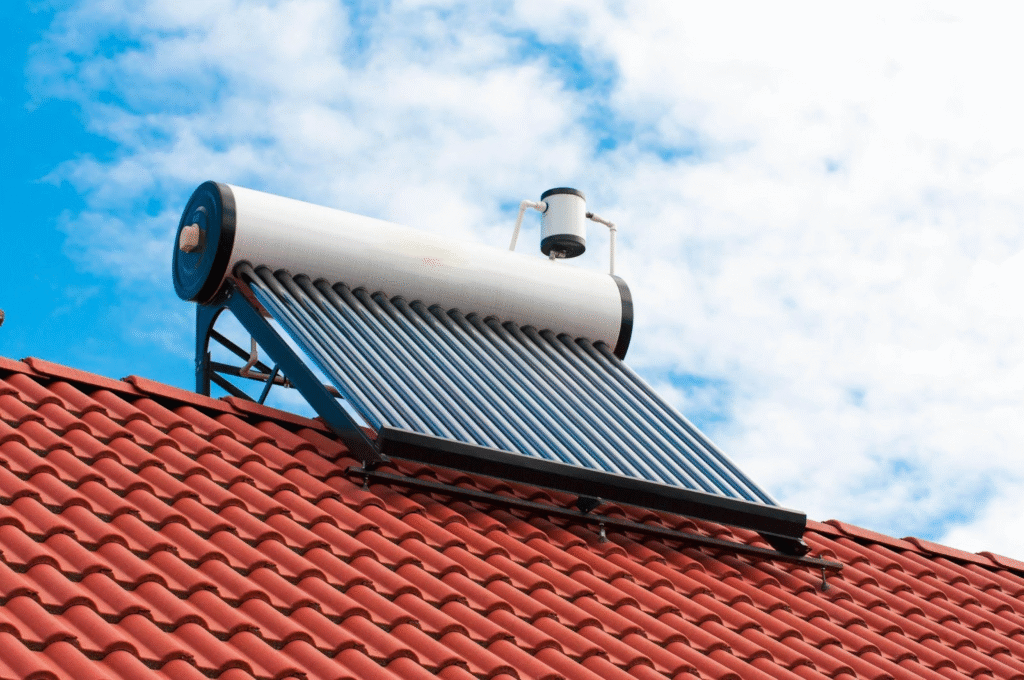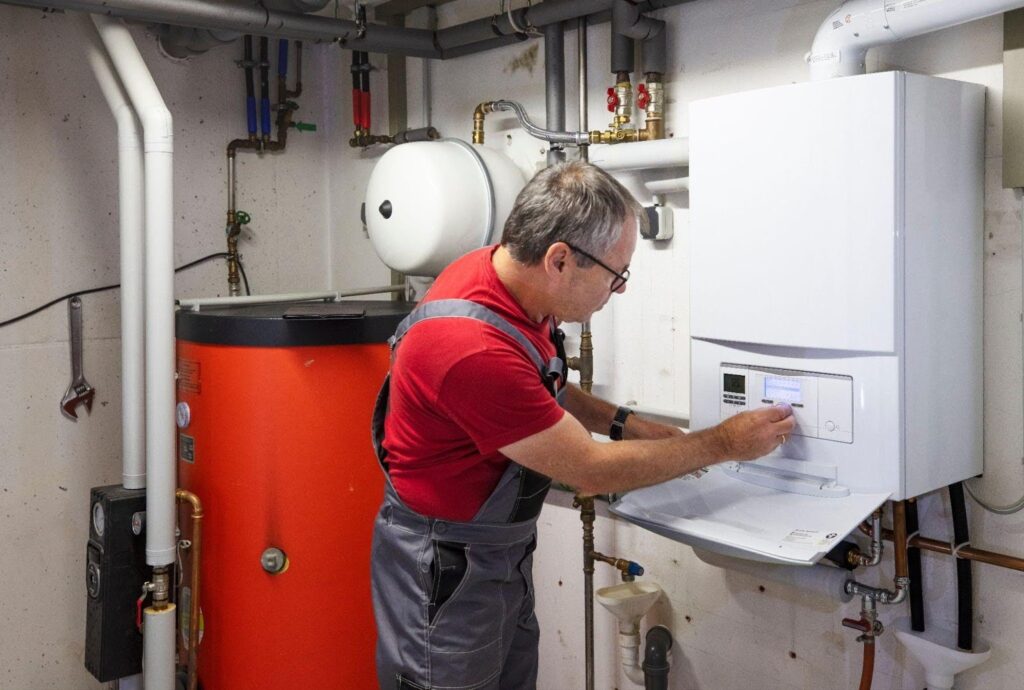If you’ve ever been surprised by a cold shower or watched your energy bills climb without explanation, it’s time for a water heater replacement. Whether you need a new installation or a replacement, understanding your options is the first step to making the right choice for your home.
There’s more to this decision than size or brand. When you compare water heater types, you’ll notice that each comes with different benefits, costs, and space requirements. And if you’ve ever wondered about the difference between a tank vs tankless water heater, you’re not alone — it’s one of the most common questions homeowners ask.
In this guide, we’ll break down the most popular water heater types, how they work, and what to consider before purchasing.
Why your water heater choice matters
Your water heater is essential for your home, though it often goes unnoticed until it stops working. Your water heater affects everything from daily water use to monthly energy bills.
When you compare water heater types, you’ll notice big differences in how they operate, how much energy they use, and how much hot water they deliver at a time. Some systems are better for small households, while others handle the demands of large families or multiple bathrooms.
Beyond performance, your water heater also impacts cost upfront and over time. Choosing an energy-efficient model will lower utility bills, while selecting the wrong size or type might lead to another water heater replacement sooner than expected.
Tank water heaters (conventional)
Tank water heaters are the most common type found in homes today. These systems store a set amount of hot water, typically between 30 and 80 gallons, and keep it heated around the clock, ready whenever you turn on a tap or appliance.
They run on electricity, natural gas, or propane. Gas models generally heat water faster, while electric versions may have lower upfront installation costs.
One of the biggest advantages of tank water heaters is their simplicity. They’re relatively easy to install, have a lower upfront cost than other systems, and meet the needs of most average-size households.
The biggest drawback is that once the tank runs out of hot water, you have to wait for it to refill and reheat. This is a frustrating experience if you have multiple people showering back-to-back or running appliances simultaneously.
Another downside is energy efficiency. Since tank systems keep water hot 24/7 — whether you’re using it or not — they waste energy through standby heat loss. This is a key point to consider when weighing a tank vs tankless water heater.
Tank systems may not be the most cutting-edge, but they’re a solid, dependable choice for many homes.

Tankless water heaters (on-demand)
Tankless water heaters offer a modern alternative to traditional tank systems. Rather than storing hot water, these units heat water when needed. When a hot water tap gets turned on, cold water travels through a heating element and is warmed instantly as it flows.
One of the biggest advantages of tankless systems is that they don’t run out of hot water. You get a continuous supply for as long as the tap is on, making them ideal for households that need consistent hot water for showers, laundry, or dishes.
Tankless models are more energy efficient than traditional tanks. They eliminate standby heat loss, helping reduce your monthly utility bills and your home’s overall energy footprint.
However, they do come with a higher upfront cost. Installation may require upgrades to your electrical panel or gas line, and a single unit may not be powerful enough for large homes with multiple demands. In these cases, homeowners may install multiple units to meet hot water needs throughout the house.
When comparing a tank vs tankless water heater, the tankless option wins for long-term savings and energy efficiency.

Heat pump water heaters (hybrid systems)
Heat pump water heaters, often called hybrid systems, are among today’s most energy-efficient options. Instead of generating heat directly, they pull warmth from the surrounding air and transfer it to the water in the tank. They use electricity to run, but because they move heat rather than produce it, they use far less energy than traditional electric water heaters.
These systems work best in warm or moderately heated areas, like garages, basements, or utility rooms, with plenty of ambient air. They take up more vertical space than standard tank models, but the long-term energy savings often compensate for the size.
Homeowners considering a water heater replacement may choose hybrids because of their ENERGY STAR ratings and potential eligibility for rebates or tax credits. Over time, they may significantly reduce utility bills, especially in homes with consistent hot water needs.

Solar water heaters
Solar water heaters use the sun’s energy to heat your water by directly warming it in rooftop panels or by powering a separate heat transfer system. These systems are available in active and passive configurations. Active systems use pumps and controls to move water, while passive systems rely on gravity and natural circulation.
The biggest benefit of solar heaters is their low operating cost. Once installed, they draw energy from the sun, so you’re not paying for electricity or gas to heat your water daily. This may lead to major savings over time for homeowners in sunny climates.
Solar water heaters come with a higher upfront cost than most traditional systems, and their performance depends heavily on your local weather. Cloudy days or shaded roofs reduce efficiency. Because of this, many homes pair a solar system with a backup heater, like a conventional tank or tankless unit, to ensure hot water is always available.
Solar systems may also qualify for rebates, tax credits, or local incentives, which help offset the initial investment.
Condensing water heaters
Condensing water heaters are a highly efficient option for homes using natural gas. These systems are similar to standard tank-style heaters but capture and reuse the heat from exhaust gases normally lost in a conventional model.
By recycling energy, condensing units can achieve much higher efficiency levels, making them a smart choice for homeowners with high hot water demand. They’re effective in larger households where water heaters are frequently in use, such as homes with multiple bathrooms or high-capacity appliances.
While they typically cost more upfront than traditional gas water heaters, condensing models tend to pay off over time with lower utility bills and less wasted energy. They are a good fit if you’re already using a gas heating system or replacing a large gas-powered unit.
For homeowners considering a water heater replacement, a condensing model is an excellent middle ground, offering the familiarity of a tank system with the energy savings of more advanced technology.
Keep in mind that installation may require proper venting and a drain to handle condensation.
Factors to consider
With so many options available, it’s easy to feel overwhelmed when choosing a water heater for your home.
Start by thinking about your household size and daily hot water usage. A small family in a modest home may not need the same capacity as a large household with multiple bathrooms and high-demand appliances. If you’re replacing an old system, it’s a good time to reevaluate whether your current setup meets your needs or if it’s time for an upgrade.
Fuel type is another consideration. Some homes have access to natural gas, while others rely solely on electricity. If you’re planning a water heater replacement, switching fuel sources might not be practical, so knowing what’s already available in your home will help narrow your options.
Tankless systems and wall-mounted units save space, while large tank heaters or heat pump models require more room for installation and airflow. The amount of physical space you have can determine what type of heater fits best.
Cost is a big factor as well — both upfront and long-term. Some models cost less to install but more to operate, while others offer energy savings over time. It’s important to weigh installation cost against efficiency and maintenance.
Finally, when you compare water heater types, remember to consider energy ratings, warranty options, and expected lifespan.

Signs it’s time to replace your water heater
Even the best water heaters don’t last forever. Over time, wear and tear lead to performance issues, higher energy bills, or even water damage. Knowing when to schedule a water heater replacement may save you from sudden breakdowns and costly emergencies.
One of the most obvious signs is inconsistent hot water. If you’re running out of hot water faster than usual, your system may struggle to keep up. This is common in older tank models where sediment buildup reduces the tank’s capacity and heating efficiency.
Leaks or pooling water around the unit’s base are another red flag. Even a small drip may point to a larger internal issue, especially if the tank is corroded or cracked.
You may also notice rising utility bills with no clear explanation. As they age, heaters work harder to deliver the same results, leading to higher energy use and operating costs. If your bills are climbing, your water heater could be the culprit.
Let Professional Plumbing Systems help you choose with confidence
Choosing the right water heater doesn’t have to be overwhelming. When you compare water heater types, consider your household’s needs, and understand the pros and cons of each system, you’re already on the path to making a smart, cost-effective decision.
Whether you’re building a new home or planning a water heater replacement, there’s no one-size-fits-all solution. Your home, budget, and comfort goals are unique, and your water heater should be, too.Let Professional Plumbing Systems help you choose with confidence. Our experienced team can walk you through your options, explain what to expect, and handle the installation with professionalism and care. Get in touch today to find the right fit for your home.




